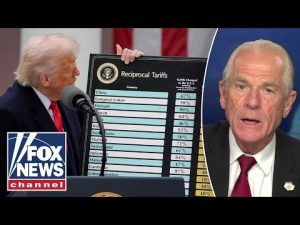In recent discussions surrounding immigration policy, a spotlight has fallen on the actions of the American government in regards to certain visa holders. A notable case is that of a Turkish student, Rumeysa Ozturk, whose visa was revoked following her participation in activities alleged to support Hamas and involve pro-Palestinian activism. This situation highlights the significance of maintaining national security and the responsibilities that come with being a guest in a foreign country.
Secretary of State Marco Rubio addressed the issue directly, emphasizing the importance of protecting the integrity of a nation’s borders and institutions. He argued that when individuals apply for visas, they must be truthful about their intentions. A nation has every right to remove individuals who enter with deceptive intentions or who engage in activities that could potentially harm or disrupt the host society. This is not a matter of quelling free speech; it is about maintaining order and safety.
The controversy around Ozturk’s case stems from claims that it violates freedom of speech. However, freedom of speech in the United States ensures that one cannot be imprisoned for their opinions, not that they can engage in activities that threaten public order without consequence. Revoking a visa is not equivalent to imprisonment but is rather a legal mechanism to maintain national security. When individuals cross the line from peaceful expression to engaging in or promoting unrest, it is within a country’s right to act.
Rubio’s stance is anchored in common sense. Granting visas is a privilege, not a right, and this privilege comes with the expectation of upholding the law of the land. Any individual who misuses this privilege by engaging in activities that could destabilize societal peace undermines their own case for remaining in the country. The consequences are not unique to the United States; any sovereign state would exercise similar caution to protect its interests.
This case highlights a broader concern about the potential for foreign nationals to exploit open societies for disruptive purposes. History has shown instances where nations have sent individuals with the intent to destabilize. Hence, it is crucial to ensure that while the United States remains a beacon of freedom, it does not become a haven for those who would abuse its openness. By maintaining strict standards on visa control, the U.S. upholds its responsibility to protect its citizens and institutions, ensuring that guests contribute positively to society rather than detract from it.







